3356294 results
Innovation Management
- Foundations and Futures
- Coming soon
-
- Expected online publication date:
- July 2025
- Print publication:
- 31 July 2025
-
- Book
- Export citation
How Economic Ideas Evolve
- The Impact of Religion on the German and Italian Welfare State
- Coming soon
-
- Expected online publication date:
- July 2025
- Print publication:
- 31 July 2025
-
- Book
- Export citation
English Phonetics and Phonology
- An Introduction
- Coming soon
-
- Expected online publication date:
- July 2025
- Print publication:
- 31 July 2025
-
- Textbook
- Export citation
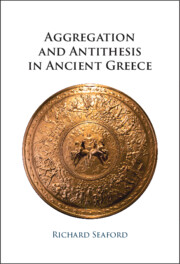
Aggregation and Antithesis in Ancient Greece
- Coming soon
-
- Expected online publication date:
- July 2025
- Print publication:
- 31 July 2025
-
- Book
- Export citation
Zola's Dream
- Idealism on Trial
- Coming soon
-
- Expected online publication date:
- July 2025
- Print publication:
- 31 July 2025
-
- Book
- Export citation
Classical Mechanics
- Coming soon
-
- Expected online publication date:
- June 2025
- Print publication:
- 01 September 2026
-
- Textbook
- Export citation
Introductory Ring Theory
- Coming soon
-
- Expected online publication date:
- June 2025
- Print publication:
- 01 September 2026
-
- Textbook
- Export citation
Stability and Politicization in Climate Governance
- Coming soon
-
- Expected online publication date:
- June 2025
- Print publication:
- 30 June 2025
-
- Book
- Export citation
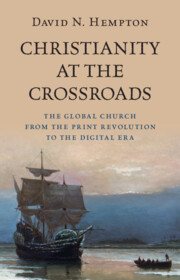
Christianity at the Crossroads
- The Global Church from the Print Revolution to the Digital Era
- Coming soon
-
- Expected online publication date:
- June 2025
- Print publication:
- 30 June 2025
-
- Book
- Export citation
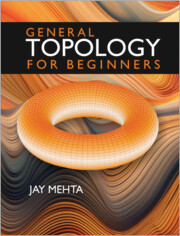
General Topology for Beginners
- Coming soon
-
- Expected online publication date:
- June 2025
- Print publication:
- 30 June 2025
-
- Textbook
- Export citation
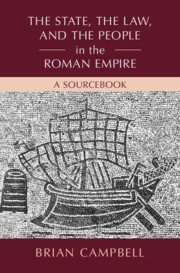
The State, the Law, and the People in the Roman Empire
- A Sourcebook
- Coming soon
-
- Expected online publication date:
- June 2025
- Print publication:
- 30 June 2025
-
- Book
- Export citation
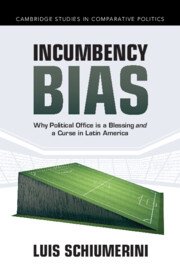
Incumbency Bias
- Why Political Office is a Blessing and a Curse in Latin America
- Coming soon
-
- Expected online publication date:
- June 2025
- Print publication:
- 30 June 2025
-
- Book
- Export citation
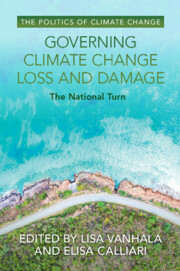
Governing Climate Change Loss and Damage
- The National Turn
- Coming soon
-
- Expected online publication date:
- June 2025
- Print publication:
- 30 June 2025
-
- Book
- Export citation
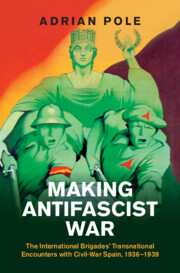
Making Antifascist War
- The International Brigades' Transnational Encounters with Civil-War Spain, 1936–1939
- Coming soon
-
- Expected online publication date:
- June 2025
- Print publication:
- 30 June 2025
-
- Book
- Export citation
The Cambridge Encyclopaedia of Late Antique Art and Archaeology
- Coming soon
-
- Expected online publication date:
- June 2025
- Print publication:
- 30 June 2025
-
- Book
- Export citation
Emigrant Soldiers
- Mobilising Italians Abroad in the First World War
- Coming soon
-
- Expected online publication date:
- June 2025
- Print publication:
- 30 June 2025
-
- Book
- Export citation
The Cambridge Encyclopaedia of Late Antique Art and Archaeology
- Coming soon
-
- Expected online publication date:
- June 2025
- Print publication:
- 30 June 2025
-
- Book
- Export citation
Property Law in China
- Transition and Trend
- Coming soon
-
- Expected online publication date:
- June 2025
- Print publication:
- 30 June 2025
-
- Book
- Export citation
Global Crisis and Insecurity
- The Human Condition, Darkly
- Coming soon
-
- Expected online publication date:
- June 2025
- Print publication:
- 30 June 2025
-
- Book
- Export citation
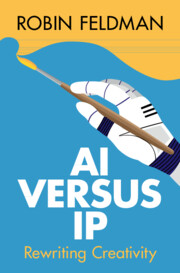
AI versus IP
- Rewriting Creativity
- Coming soon
-
- Expected online publication date:
- June 2025
- Print publication:
- 30 June 2025
-
- Book
- Export citation

